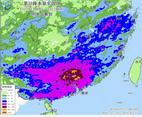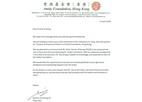Amidst the issue between the tariffs on Chinese imports to the US, there has been another announcement made by Chinese President Xi Jinping on Tuesday regarding imports to the country.
According to the Chinese leader, his government would "significantly lower" tariffs on vehicle imports this year as part of efforts to further open its giant economy to the world.
The pledge addresses one of the pains of US President Donald Trump, who has threatened to impose new tariffs on $150 billion of Chinese goods in a trade dispute between the world's two largest economies. However, experts warn that Xi's comments may not do much to resolve the conflict, which has rocked markets in recent weeks.
Throughout an eagerly awaited speech at a development conference on the tropical Chinese island of Hainan, Xi promoted the planned cut in vehicle tariffs and a series of other measures as "a new phase of opening up." But many of the steps he outlined are ones Beijing has already proposed in some form.
Car Tariffs
The Chinese government had promised in November to "gradually and properly" reduce tariffs on imported vehicles, though it didn't give a specific time frame for doing so.
"President Xi's remarks do not represent a dramatic departure from existing Chinese policy, but rather a restatement of the same themes Xi has promoted throughout his tenure atop China's policy making system," said Chaoping Zhu, global market strategist at JP Morgan Asset Management.
Meanwhile, US President Trump complained as early as Monday about China's 25% tariff on foreign cars, indicating that it's far higher than the 2.5% tariff the United States charges for imported cars. "Does that sound like free or fair trade," Trump tweeted. "No, it sounds like STUPID TRADE - going on for years!"
Because of the current dispute, stock markets have been plunging repeatedly. Experts fear of a potential US-China trade war as responded positively to Xi's comments.
Hong Kong's Hang Seng Index and Dow futures in the United States were up more than 1% after the speech.
However, it remains vague on how much, if at all, of Xi's pledges Tuesday will help defuse the trade tensions between the two sides. China has already proposed new tariffs on $50 billion of US goods and threatened to retaliate further.
According to JP Morgan's spokesperson, "This speech did not represent a major shift in Chinese policy and it is likely the US-China trade dispute will require more negotiation."
"Clearly, he prefers a cool-headed approach toward the dispute," said Larry Hu, a China-focused economist at investment bank Macquarie Capital. Hu predicted that the current US-China clash over trade would eventually end with some kind of concessions from Beijing.








